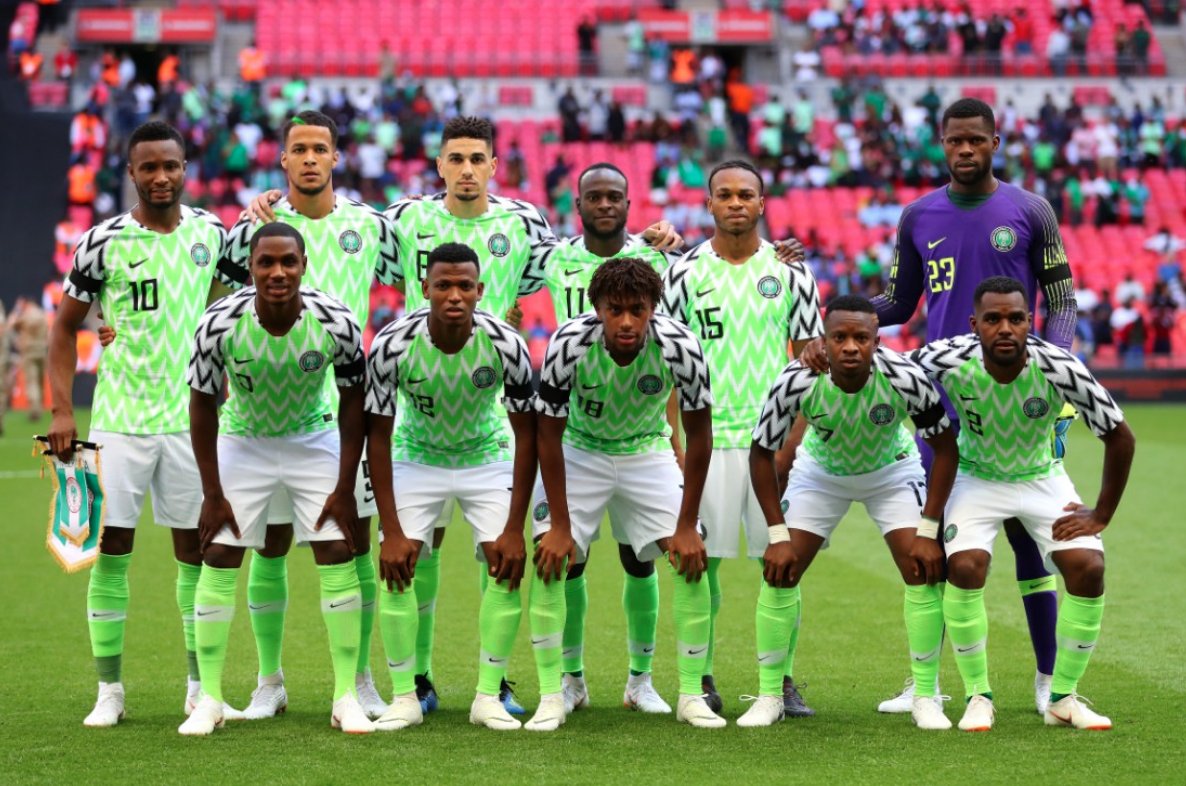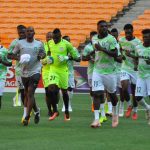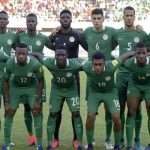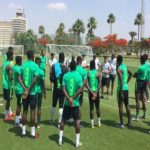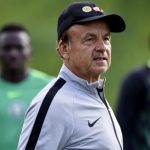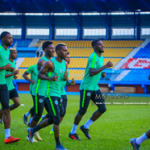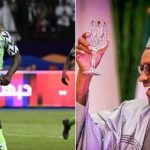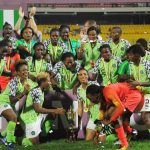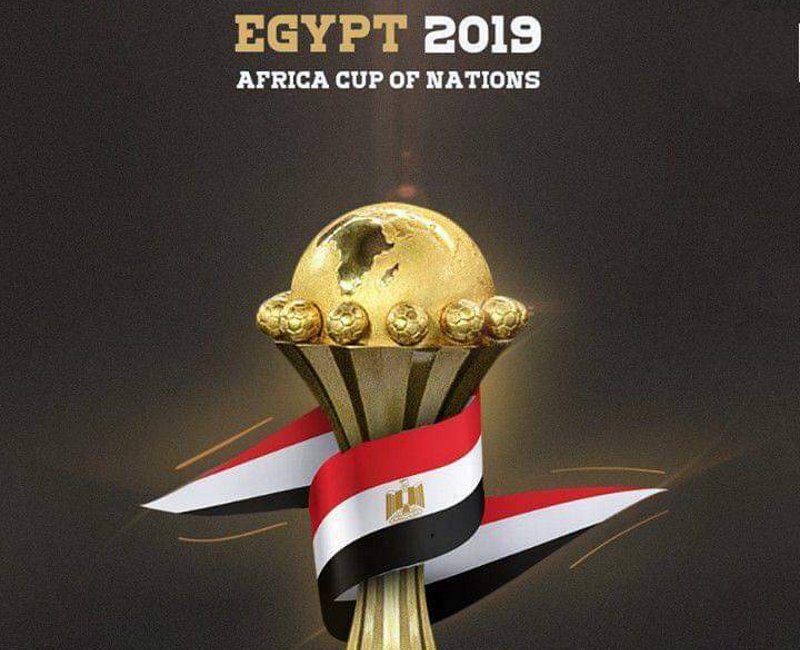 The 2019 African Cup of Nations, the biennial international men’s football championship of Africa, will kick off in Egypt on June 21, and is expected to be concluded on July 19.
The 2019 African Cup of Nations, the biennial international men’s football championship of Africa, will kick off in Egypt on June 21, and is expected to be concluded on July 19.
As participating nations prepare for the all-important tournament, Wasiu Salami x-rays Super Eagles’ Nation’s Cup records and the challenges ahead.
The 2019 Africa Cup of nations is scheduled to be the 32nd edition organized by the Confederation of African Football (CAF), and it will be held from 21 June to 19 July, 2019. The CAF Executive Committee had on 20 July 2017 agreed to move the Africa Cup of Nations from January/February to June/July for the first time. It will also be the first Africa Cup of Nations expanded from 16 to 24 teams.
Although the tournament was initially scheduled to be hosted by Cameroon, it was stripped off hosting the tournament on 30 November 2018, reportedly due to delays in the delivery of infrastructure, the Boko Haram Insurgency, and the Anglophone crisis. However, on 8 January, 2019, Egypt was chosen by the CAF Executive Committee as the host nation of the competition.
The tournament, to be participated in by 24 countries for the first time, will be played in six stadiums in the host country – Egypt. The six venues are Cairo International Stadium and 30 June Stadium in Cairo, Alexandria stadium in Alexandria, Suez stadium in Suez, Ismailia Stadium in Ismailia and Al Salam stadium in Cairo.
Super Eagles: The Journey So Far
 The Super Eagles had their first appearance in the nation’s cup in 1963, and are currently ranked fourth in Africa. The Eagles are not strangers in the prestigious Africa Cup of Nations; having appeared 18 times and won the tournament three-times. However, of all the 18 times the Super Eagles have appeared in the tournament, Tunisia ’94 outing remains a reference point, not only because Eagles won the trophy, but because of the completeness of the team. Nigeria paraded a crop of players who were individually and collectively outstanding on the field of play. Also, the 1994 outing coincided with the nation’s first appearance in the world Cup – USA ’94. The team had talented, skillful and disciplined players both on the pitch and even on the bench- late Rasheed Yekini, Late Stephen Keshi, Peter Rufai, Daniel Amokashi, Ben Iroha, Uche Okechukwu, Samson Siasia, Mutiu Adepoju, Chidi Nwanu, Taribo West, Austin J.J Okocha, Garba Lawal, Finidi George were some of those who made the nation great in that year. In fact, they have been described by many as a complete team that Nigeria may never have again.
The Super Eagles had their first appearance in the nation’s cup in 1963, and are currently ranked fourth in Africa. The Eagles are not strangers in the prestigious Africa Cup of Nations; having appeared 18 times and won the tournament three-times. However, of all the 18 times the Super Eagles have appeared in the tournament, Tunisia ’94 outing remains a reference point, not only because Eagles won the trophy, but because of the completeness of the team. Nigeria paraded a crop of players who were individually and collectively outstanding on the field of play. Also, the 1994 outing coincided with the nation’s first appearance in the world Cup – USA ’94. The team had talented, skillful and disciplined players both on the pitch and even on the bench- late Rasheed Yekini, Late Stephen Keshi, Peter Rufai, Daniel Amokashi, Ben Iroha, Uche Okechukwu, Samson Siasia, Mutiu Adepoju, Chidi Nwanu, Taribo West, Austin J.J Okocha, Garba Lawal, Finidi George were some of those who made the nation great in that year. In fact, they have been described by many as a complete team that Nigeria may never have again.
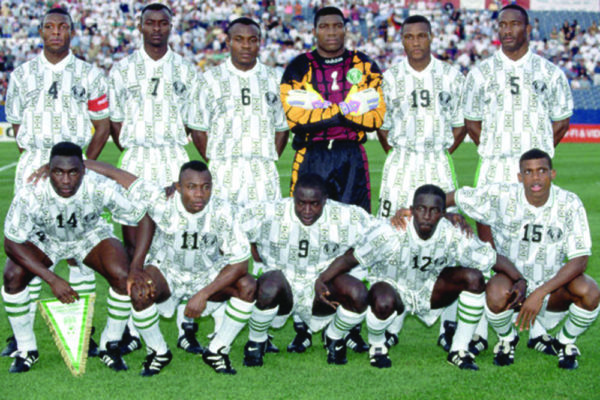 In April 1994, the Super Eagles were ranked 5th in the FIFA rankings, the highest FIFA position ever achieved by an African football team. Throughout history, the team has qualified for six of the last seven FIFA world cups (as of 2018), missing only the 2006 world cup hosted in Germany, and have reached the round of 16 three times.
In April 1994, the Super Eagles were ranked 5th in the FIFA rankings, the highest FIFA position ever achieved by an African football team. Throughout history, the team has qualified for six of the last seven FIFA world cups (as of 2018), missing only the 2006 world cup hosted in Germany, and have reached the round of 16 three times.
Nigeria played its first game in October 1949, while still a British Colony. The team played warm-up games in England against various amateur teams including Bromley, Dulwich Hamlet, Bishop Auckland and South Liverpool. The team’s first major success was a gold medal in the 2nd All-Africa games, with 3rd-place finishes in the 1976 and 1978 African Cup of nations to follow. In 1980, with players such as Segun Odegbami and Best Ogedengbe, the team, led by Christian Chukwu, won the for the first time in Lagos. Nigeria Olympic men’s football team won the football event at the 1996 Olympics in Atlanta, beating Mexico, Brazil and Argentina in the process. The Eagles were runners-up in the same event at the 2008 Olympics in Beijing, losing to Argentina in a rematch of the 1996 event.
Nigeria won the Africa Cup of Nations in 1980, 1994 and 2013. They were losing finalists in 1984, 1988, 1990 and 2000. The 2013 edition was won under late Coach Stephen Keshi, who made history as the first coach to win the tournament both as a player and as a coach.
The Present Super Eagles
After missing out in the prestigious Africa Cup of Nations for two consecutive times (2015 and 2017), the three-time champions secured a ticket to return to the tournament in Egypt under the headship of a foreign coach, Gernot Rohr. The German coach also led the Eagles to the World Cup in Russia in 2018, but could not go beyond the group stage, losing two matches and winning one. This dismal performance however, did not deter Eagles from securing a ticket to take part in the biennial African Cup of Nations in Egypt. This it did even with a game to go in the qualifier.
Just like any other football team, the current Super Eagles are made up of 23 regular and irregular players comprising of the Goalkeeper, Defence, Midfield, and Forward. A breakdown of Nigeria’s national team in recent times shows the following:
 Goalkeepers: Ikechukwu Ezenwa, Francis Uzoho and Daniel Akpeyi
Goalkeepers: Ikechukwu Ezenwa, Francis Uzoho and Daniel Akpeyi
Defence: Kenneth Omeruo, Shehu Abdullahi, William Troost-Ekong, Leon Balogun, Ola Aina, Semi Ajayi, Jamilu Collins, Chidozie Awaziem, Ikouwem Udom, Valentine Ozornwafor
Midfield: Ahmed Musa, John Mikel Obi, Alex Iwobi, Isaac Success, Ogenyi Onazi, Joel Obi, Kelechi Nwakali, Wilfred Ndidi, Peter Etebo, Moses Simon, John Ogu, Henry Onyekuru, Samuel Kalu
Forward: Odion Ighalo, Victor Osimhen, Paul Onuachi, Ndifreke Udo, David Okereke and Kelechi Iheanacho.
As noted earlier, the 24 participating countries in the 2019 AFCON have been divided into six different groups (A-F) with each group having four teams. The breakdown of the groups shows the following:
Group A: Egypt, DR Congo, Uganda and Zimbabwe
Group B: Nigeria, Guinea, Madagascar and Burundi
Group C: Senegal, Algeria, Kenya and Tanzania
Group D: Morocco, Ivory Coast, South Africa and Namibia
Group E: Tunisia, Mali, Mauritania and Angola
Group F: Cameroon, Ghana, Benin and Guinea Bissau
The top two teams of each group, along with the best four third-placed teams, will advance to round of 16.
However, despite qualifying for the AFCON, one could not say emphatically that the Eagles are indeed a team to beat at the forthcoming AFCON in Egypt. The team is faced with different challenges ranging from tactical indiscipline to quality playing for its players in their respective clubs. But more worrisome is the choice and quality of its goalkeepers when compared with their contemporaries. Presently, Nigeria parades the likes of Francis Uzoho, Ezenwa and Daniel Akpeyi, as its top three players. But Francis is favoured by the head coach, as the Eagles’ first choice goalkeeper. Then what are the qualities expected of a goalkeeper?
Goalkeeping: The Basic Qualities
 The goalkeeper is the most specialized position in sport. The goalkeeper’s primary role is to prevent the opposing team from scoring. This is accomplished by the goalkeeper moving into the path of the ball and either catching it or directing it away from the vicinity of the goal line. There are some basic qualities a good goalkeeper must possess. These include:
The goalkeeper is the most specialized position in sport. The goalkeeper’s primary role is to prevent the opposing team from scoring. This is accomplished by the goalkeeper moving into the path of the ball and either catching it or directing it away from the vicinity of the goal line. There are some basic qualities a good goalkeeper must possess. These include:
- Good hands: A goalkeeper must have soft hands while collecting the ball and being strong when needing to punch the ball away.
- Quickness: a goalkeeper has to be a quick thinker and mover
- Height maters: Must be reasonably tall
- Being tough and must have game awareness
- Confidence: Confidence allows a player to accomplish the tasks ahead. Without confidence, a player sets themselves back mentally and it is difficult to overcome the hurdle.
- Positioning and Footwork: Goalkeeper must know where to position themselves during the game, corners, free-kicks, one-one situations with an attacker and more demand goalkeepers to take up different positions. In addition, players need to master the footwork it takes when moving into positions or diving to stop shots.
The above, (though not only the qualities expected of any player regarded as a goalkeeper), are the major characteristic features a goalkeeper must possess on the field of play. The question then is, does any of the Nigeria’s present crop of goalkeepers or even the first choice goalkeeper – Francis Uzoho possess these qualities or at least, a reasonable number of them? Let’s attempt to answer these questions one after the other.
X-raying Francis Uzoho
 Francis Odinaka Uzoho, born 28 October 1998, is a Nigerian professional footballer. He joined Qatari Aspire Academy in 2013 when he was 14. Uzoho started his footballing career as an attacker but was converted to a goalkeeper after being deemed “too slow” at the age of 12. In 2016, after impressing on a tournament in Barcelona, he joined Deportivo de La Coruna’s Juvenil squad.
Francis Odinaka Uzoho, born 28 October 1998, is a Nigerian professional footballer. He joined Qatari Aspire Academy in 2013 when he was 14. Uzoho started his footballing career as an attacker but was converted to a goalkeeper after being deemed “too slow” at the age of 12. In 2016, after impressing on a tournament in Barcelona, he joined Deportivo de La Coruna’s Juvenil squad.
Age rules meant that Uzoho could only become available to sign a contract with Dépor in January 2017; shortly after signing his contract, he started to train with the first team and was promoted to the reserves ahead of the new season. He made his senior debut on September 10 in a 3–0 Segunda Division B home win against Real Madrid Castilla.
Uzoho made his first team and La Liga debut on 15 October in a 0–0 away draw against Eibar. At the age of 18 years and 352 days, he became the youngest ever foreign goalkeeper to debut in La Liga and the second-youngest player to appear in the league behind Real Madrid’s Achraf Hakimi.
 Ahead of the 2018 World Cup qualifier against Algeria and the international friendly game against Argentina, Uzoho was handed his first Nigerian call-up after making his La Liga debut in La Coruna’s 0-0 draw with Eibar on October 16. The then 18-year-old, who arrived at the club from Qatar’s Aspire Academy in January, produced four important saves to help Deportivo claim a point. “A day that will never disappear from my memory – my debut – thanks all for the support,” he said.
Ahead of the 2018 World Cup qualifier against Algeria and the international friendly game against Argentina, Uzoho was handed his first Nigerian call-up after making his La Liga debut in La Coruna’s 0-0 draw with Eibar on October 16. The then 18-year-old, who arrived at the club from Qatar’s Aspire Academy in January, produced four important saves to help Deportivo claim a point. “A day that will never disappear from my memory – my debut – thanks all for the support,” he said.
Uzoho’s invitation into the Super Eagles could be said to be as a result of Carl Ikeme’s unfortunate treatment for acute Leukaemia. Before then, South Africa-based Daniel Akpeyi, Plateau United’s Dele Ajiboye, and FC Ifeanyi Ubah’s Ikechukwu Ezenwa were Eagles’ regular goalkeepers. The 2018 World Cup qualifier was Uzoho’s first appearance in the senior men’s national team, and made three appearances for the team during the tournament in Russia.
 Using the above qualities to measure the fitness of Nigeria’s first choice goalkeeper, a honest analysis reveals the following: First, Francis Uzoho, as a first choice goalkeeper has not had enough playing at his club side, thereby denying him the required fitness and confidence required of any player in his position. This point was buttressed even by the Eagles’ coach when he said: ‘my greatest worry is that Uhozo has not been having enough playing time at his club, and this may affect his fitness and confidence level”. Rohr added that he’s considering sending a fitness team to Uhozo ahead of the AFCON to keep him fit for the biennial soccer event. Secondly, apart from not having regular playing time, Uzoho has not really shown that he is competent and confident enough to man the goal post. He has made some tactical error not expected of a player wearing his crown. The most recent of such display was during the last AFCON qualifying match in Asaba, Delta State. Third, Uzoho has a good height, making him the choice of the German coach, Gernot Rohr. A tall goalkeeper threatens any striker if he puts his height into best use. In the case of Uzoho, he has demonstrated that his height is his bestselling point, but he still needs to build confidence around his height and communicate effectively with the defence to avoid avoidable mistakes as experienced in his most recent appearance. Lastly, decisions must be taken as prompt as possible. However, there were some instances where Uzoho was not really clear with which decision he was to make. This poses serious danger on the defence especially when dealing with a fast and skillful striker.
Using the above qualities to measure the fitness of Nigeria’s first choice goalkeeper, a honest analysis reveals the following: First, Francis Uzoho, as a first choice goalkeeper has not had enough playing at his club side, thereby denying him the required fitness and confidence required of any player in his position. This point was buttressed even by the Eagles’ coach when he said: ‘my greatest worry is that Uhozo has not been having enough playing time at his club, and this may affect his fitness and confidence level”. Rohr added that he’s considering sending a fitness team to Uhozo ahead of the AFCON to keep him fit for the biennial soccer event. Secondly, apart from not having regular playing time, Uzoho has not really shown that he is competent and confident enough to man the goal post. He has made some tactical error not expected of a player wearing his crown. The most recent of such display was during the last AFCON qualifying match in Asaba, Delta State. Third, Uzoho has a good height, making him the choice of the German coach, Gernot Rohr. A tall goalkeeper threatens any striker if he puts his height into best use. In the case of Uzoho, he has demonstrated that his height is his bestselling point, but he still needs to build confidence around his height and communicate effectively with the defence to avoid avoidable mistakes as experienced in his most recent appearance. Lastly, decisions must be taken as prompt as possible. However, there were some instances where Uzoho was not really clear with which decision he was to make. This poses serious danger on the defence especially when dealing with a fast and skillful striker.
The above are some of the noticeable qualities of Super Eagles’ first choice goalkeeper, Francis Uzoho, whose job is to make the goal post safe and prevent the opponent from gaining access. While some of Uzoho’s tactical errors are amenable before the AFCON, there are many others that require experience on the job with regular playing. Although Eagles’ success or otherwise the AFCON 2019 tournament is a collective responsibility of both the players and the coaching crew, the role of a goalkeeper is too sensitive to be left with a less competent and experienced player if the Eagles are indeed ready to fly in Egypt.

